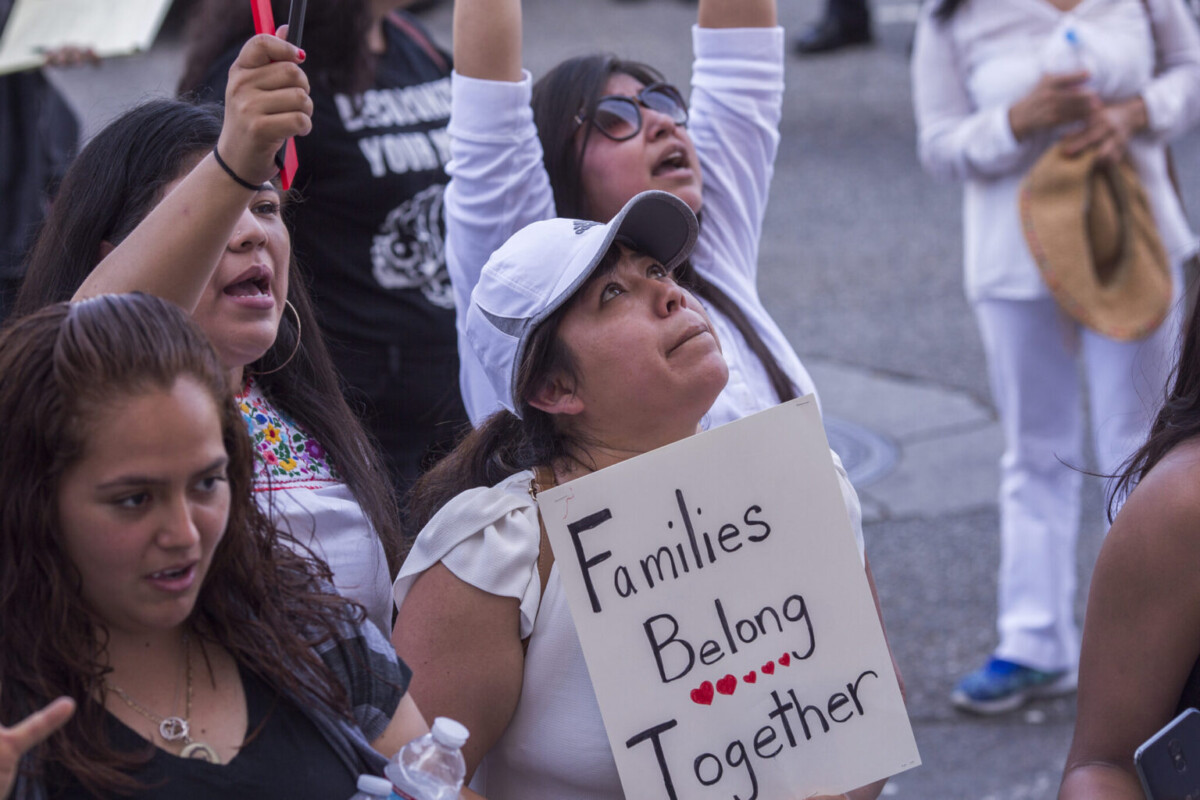Recent mass deportations in the United States are leaving some immigrant families stressed about potential problems they might encounter, including how their children react and internalize feelings of fear and anxiety.
The U.S. Immigration and Customs Enforcement (ICE) significantly increased its deportation efforts since President Donald Trump’s second term, deporting over 65,000 people in the first 100 days. According to the American Civil Liberties Union (ACLU), deportation without due process — fair treatment through the judicial system; discrimination based on tattoos and clothing; and the targeting of non-citizen students is on an uptick. This has resulted in large communities of immigrants becoming increasingly frightened for their safety, with 32% of immigrants reporting that this fear is negatively impacting their health.
However, these events are not only affecting the parents who are faced with deportation, but their children as well. Children of immigrants are experiencing fear and stress concerning their parents’ and their own safety.
Ivan, whose last name has been withheld at request, fled Russia to the U.S. with his father three years ago. It has become a lot more difficult for immigrants to survive in America now, he said.
“It is unstable, [because] there is no work, for almost [any]one and there is nothing [you can] do,” he said. “In general, yes, I feel anxiety, because there has been a lot of [unlawful] deportation. I’m just trying to find [a job] now to somehow survive.”
Ivan’s father said they would not be able to go back to Russia and would have to find refuge elsewhere if forced to leave the U.S. as they are seeking political asylum. The 56-year-old, who spoke under condition of anonymity, was an anti-Putin party activist and protester.
“If, for whatever reason, we are forced to leave, [it] would completely disrupt our lives, especially my son’s,” he said. “He’s in school here and if we’re deported or detained, it would not only be a moral shock, it would destroy everything we’ve built.”
The father said he attempts to guard his son from the fears he’s facing. He clarified his concerns about his son’s mental health.
“Ultimately, I feel this is more of my responsibility and I carry the weight of that. But yes, I worry, absolutely,” he continued. “While [my son] doesn’t fully understand the danger at age 15, I can see that it makes him nervous.”
Children often experience “vicarious trauma” through their parents or loved ones, explained Darren Bernal, Ph.D., a counseling psychologist and associate professor of psychology at Howard University. Children who hear stories about something that happened to someone they are close to often experience many of the negative symptoms that the victims do as well.
Vicarious trauma often occurs because an immigrant family often operates as a unit as opposed to individuals.
“They retain cultures where they’re more collectivistic and more interdependent,” Bernal said. “If you look at it from that lens, stress to the parent is sometimes equivalent to stress to the child, because they’re thinking of themselves more as a unit than in an individual manner, the way they do in the U.S.”
Because parents play such an integral role in a child’s development, the way they view the world can reflect upon their children. If the parents view the world as a dark and frightening place, that perception will be passed along to the child, even unwillingly.
Bernal said some parents play a more protective role for their children, which can affect their mentality if they are taken away or if they start to question why their protectors are perceived as not having any power.
Because children are still learning, “they are creating a worldview and they’re trying to make sense of life,” he said. “If you learn that the world is an unclear place as a child, you may continue using that framework the rest of your life and it can have long-term effects on children.”
The refugee father agrees.
The possibility of deportation “creates an inner contradiction for a teenager,” he said. “They see that something’s wrong, that the declared rights and freedoms aren’t always protected. It undermines the belief system that should be forming at this age.”
The way this fear is handled will affect how the child processes potential trauma in the future, Bernal said. Simply put, this kind of psychological stress could make the child more sensitive to future trauma.
The most important way to help children under such stress is to acknowledge their delicate nature and sensitivity at this age, Bernal explained.
“Children need to be assisted in making sense of what’s going on in a meaningful way. [For example,] explaining the situation directly as opposed to allowing the children to make sense of it on their own,” he added. “The younger you get, the more important this is, as children are often egocentric, so it may be [positive] to just have a conversation with them.”
Anastasia Efremova is a reporter for VoicesofTomorrow.news through the Howard University Multicultural Media Academy. She is a rising junior at Troy High School in Fullerton, California.











